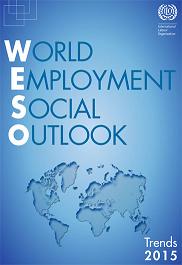Mitchell, B. (2015) “Denmark should abandon its euro peg, Bill Mitchell Blog, 21 January. In my soon-to-be-published book on the Eurozone I examined the case of Denmark in some detail in the context of the evolution of the European Monetary System, the European Exchange Rate Mechanism (ERM), and the ratification process of the Treaty of Maastricht. Denmark was a participant in all the attempts to maintain fixed exchange rates …Read More
Falling oil prices should help Europe’s ailing economies, but the wider implications of the price drop remain to be seen
Scholtens, B. (2015) “Falling oil prices should help Europe’s ailing economies, but the wider implications of the price drop remain to be seen“, LSE EUROPP, 21 January. How will the drop in oil prices affect European economies? As Bert Scholtens writes, the general expectation is that a fall in oil prices should help economic growth across Europe, but there are nevertheless a number of key factors which play an …Read More
Will R&D tax incentives get Europe growing again?
Gaillard, E. & Straathof, B. (2015) “Will R&D tax incentives get Europe growing again?“, VoxEU Organisation, 20 January. Tax incentives have become a common policy tool for encouraging firms to spend more on research and development – and the recession has further raised interest in the effectiveness of this policy. This column highlights a new review of the empirical evidence, which suggests that fiscal incentives for R&D only modestly …Read More
World Economic Outlook Update
World Economic Outlook Update, International Monetary Fund, January 2015. Cross Currents Global growth will receive a boost from lower oil prices, which reflect to an important extent higher supply. But this boost is projected to be more than offset by negative factors, including investment weakness as adjustment to diminished expectations about medium-term growth continues in many advanced and emerging market economies. Global growth in 2015–16 is projected at 3.5 …Read More
World Employment and Social Outlook – Trends 2015 (full report)
World Employment and Social Outlook – Trends 2015 (full report), International Labour Organization, January 2015. Summary Renewed turbulence over the employment horizon The world economy continues to expand at rates well below the trends that preceded the advent of the global crisis in 2008 and is unable to close the significant employment and social gaps that have emerged. The challenge of bringing unemployment and underemployment back to pre-crisis levels …Read More
Which economic theories are especially widely misunderstood?
Cowen, Τ. (2015) “Which economic theories are especially widely misunderstood?“, Marginal Revolution Blog, 20 January. A lot of them are, actually. The efficient markets hypothesis might be one, as I’m not sure I understand it myself! (Would the existence of just one investor “beating the market” disprove it? Probably not, but then how many are needed? How many of them have to beat the market “for the right reasons”? …Read More
Explaining the global trade slowdown
Constantinescu, C., Mattoo, A. & Ruta, M. (2015) “Explaining the global trade slowdown“, VoxEU Organisation, 18 January. Not only is world trade lower than its pre-Crisis level, but it is also growing slower than GDP. This column examines the relationship between trade and GDP in the last four decades. The findings indicate that roughly half of the slowdown is driven by structural rather than cyclical factors. Trade itself has …Read More
We should be wary of removing the ECB from the troika to facilitate the use of outright monetary transactions
Otero Iglesias, Μ. (2015) “We should be wary of removing the ECB from the troika to facilitate the use of outright monetary transactions“, LSE EUROPP, 19 January. A key legal debate in the context of the Eurozone crisis is whether so called ‘Outright Monetary Transactions’(OMT), which would allow the European Central Bank (ECB) to buy unlimited numbers of government bonds in secondary markets, are compatible with European law. The …Read More
SNB decision tells us that the crisis in entering a new phase
Mitchell, B. (2015) “SNB decision tells us that the crisis in entering a new phase“, Bill Mitchell Blog, 19 January. Switzerland – home of the secret bank vaults, which house treasures stolen from people (particularly the Jewish victims) by the Nazis during WW2 and ill-gotten cash by capitalists who wish to evade scrutiny of prudential and tax authorities of their domiciled nations. Now it is the canary, which has …Read More
The fragmentation of power is irreversible
Conversation by Martin Eiermann with Parag Khanna: “The fragmentation of power is irreversible”, The European Magazine, 16 January 2015. The end of the nation-state as we know it: Parag Khanna discusses the path towards global connectivity and why we have to shift from Western history to global history. The European: Mr. Khanna, especially in Europe, we’re witnessing a resurgence of regionalist or nationalist thinking that seems to cast doubt …Read More








